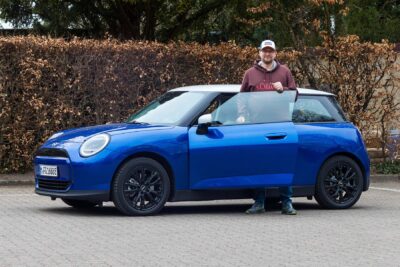France tightens penalty tax for polluting and heavy new vehicles
Since the turn of the year, state subsidies for electric cars dependent on CO2 emissions during the production of vehicles and batteries. The so-called “bonus écologique” is based on a points system that includes various environmental criteria – including the ecological footprint of the assembly plant and the transport routes to the point of sale. It is virtually impossible for Chinese manufacturers to fulfil the criteria.
As a result, there is not a single electric car made in China on a list of subsidised models published by the government in December. However, around two-thirds of the electric vehicles sold in France are eligible, including many models from the Stellantis Group, Renault and German manufacturers. The Tesla Model Y produced in Germany also qualifies for the subsidy.
At the same time, France also tightened the “malus écologique.” The one-time penalty tax is payable when a car is first registered in France and will be used to ensure that lighter and low-emission vehicles come onto the market. It is also calculated depending on the vehicle’s CO2 emissions. Since the turn of the year, cars emitting more than 118 g/km or more, according to WLTP, will have to pay. Previously, the cap was 123 g/km or more. The tax starts at 50 euros and increases rapidly with higher CO2 emissions – to a maximum of 60,000 euros (previously 50,000 euros). The latter applies if CO2 emissions are higher than 194 grams per kilometre.
In addition, particularly heavy ICE vehicles weighing 1,8000 kg or more have had to pay a penalty since 2022. Now, it applies to all cars weighing more than 1,600 kg.
For cars weighing between 1,600 and 1,799, owners must pay ten euros per kilo of excess weight. For cars weighing between 1,800 and 1,899, the fee increases to 15 euros/kg. If the weight is between 1,900 and 1,999 kg, it costs 20 euros/kg, and 25 euros/kg for cars from 2,000 to 2,099 kg. Everything weighing over 2,100 kilograms costs 30 euros per “excess” kilo. According to estimates, ten per cent of new diesel and petrol cars sold in France in 2024 will weigh more than 1,800 kilograms.
The government grants penalty reductions to large families, who often drive larger (and heavier cars), as well as first-time owners of converted vehicles, provided that the vehicle is registered six months or later after the initial registration due to the conversion.
beev.co, caroom.fr, economie.gouv.fr (in French)





1 Comment